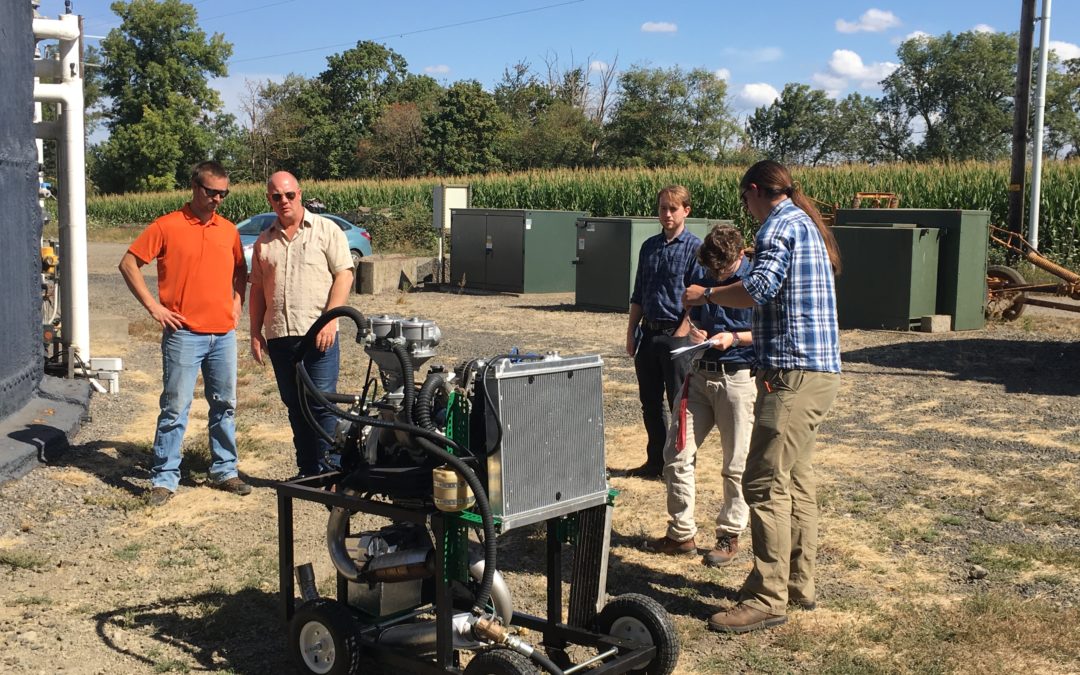2017 started with a global climate crisis, and continued slow adoption of renewable energy solutions in the US.
2017 was a year that Slate and ClimateDesk.org called “The Year We Should Have Realized That Climate Change Is Already Here.”
2017 was the worst fire season in American history. North America lost more than 9.5 million acres due to out of control wildfires. That cost us $2 billion alone.
Hurricanes also did more of their fair share of destruction in 2017. It was the 7th most destructive Atlantic hurricane season on record.
2017 has logged more individual billion-dollar disasters since the US government began keeping track of these events in 1980.
In 2016, Earth passed the 403 parts per billion mark of CO2 in the Earth’s atmosphere. This past year, it didn’t stay there. As of this writing, it is 405.14 parts per billion. This is more CO2 than ever seen since the last ice age.

The VPG team at the Aumsville, Oregon test site putting the prototype through its paces.

Flare stacks like these burn methane every day across the nation – all of it wasted.
THE PROBLEM BECOMES THE SOLUTION
Carbon dioxide isn’t the only problem. Methane is a much more destructive greenhouse gas than carbon dioxide by a factor of 84 times.Methane comes from a number of sources; some artificial and some organic. Fracking is the number one artificial source of methane and the solution to that problem is clear – either completely capture the emitted methane or stop fracking. The organic sources of methane are a different matter; landfills, farms and wastewater treatment plants all emit vast quantities of methane. Methane from those sources can be relatively easily captured, and Volta PowerGen is on a mission to use this as a renewable resource to deliver baseload renewable energy thus, removing methane from the atmosphere.
Current methane-fueled generator systems come with a very high cost of ownership, are usually unreliable and clunky installations, and are usually comprised of several very large, expensive, internal-combustion / converted diesel engines.
We had a better idea for delivering baseload power from this environmentally-toxic biogas, so we designed the Evergreen Genset. This scalable system features a low cost of ownership, low maintenance (only four moving parts) – and it can operate using multiple types of renewable and low-grade fuels, making it an ideal solution for Disaster Preparadeness.
During the summer and fall of 2017, the prototype was tested in farms and fields throughout Oregon – each test yielding results that exceeded all expectations.
With installations on farms, in landfills and at wastewater treatment plants set to begin in 2018, we’ll be making a dent in the methane problem that plagues our planet, and we hope to inspire others to join us in this critical mission!
Give Us a Shout
Subscribe To Our Newsletter

Where to Meet
Volta Powergen Corp.
McMinnville Municipal Airport
4040 SE Cirrus Ave
McMinnville, OR 97128
Say Hello
Email: info@voltacompanies.com


Recent Comments